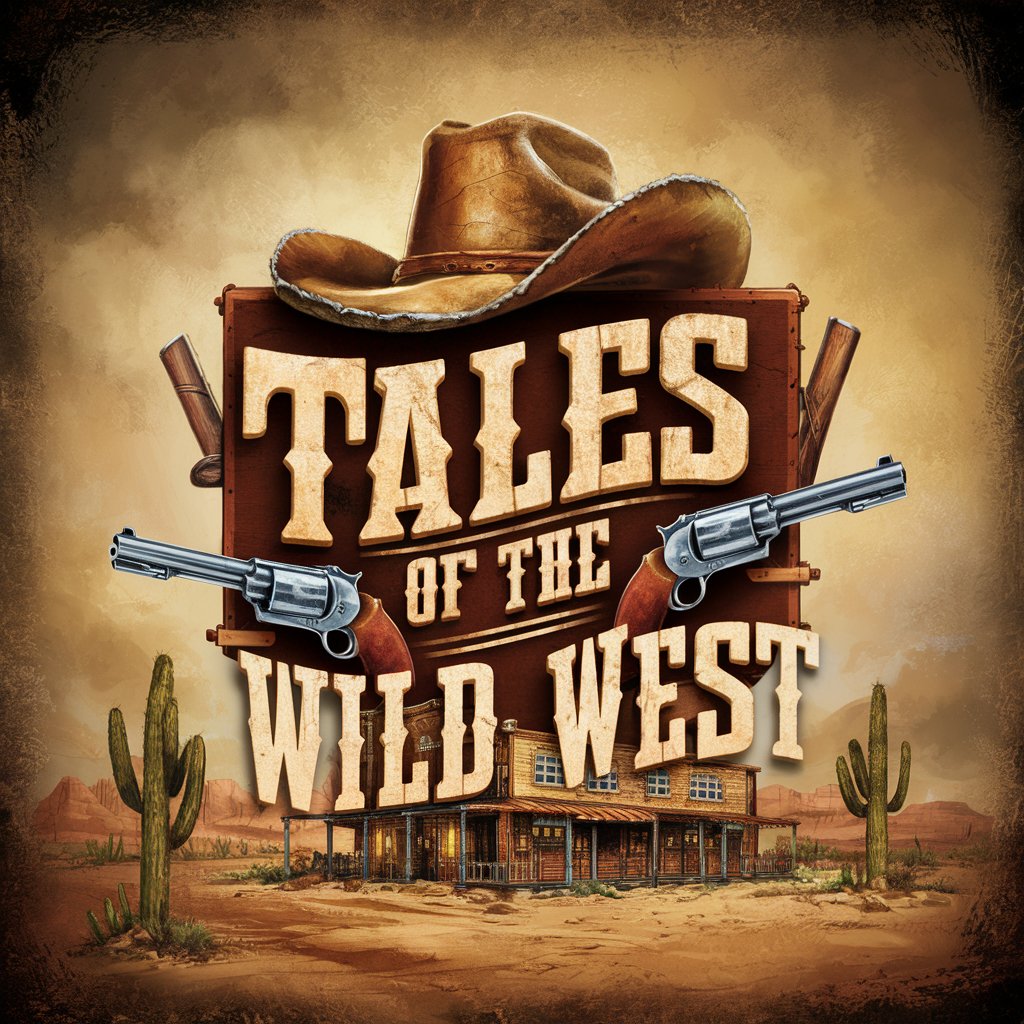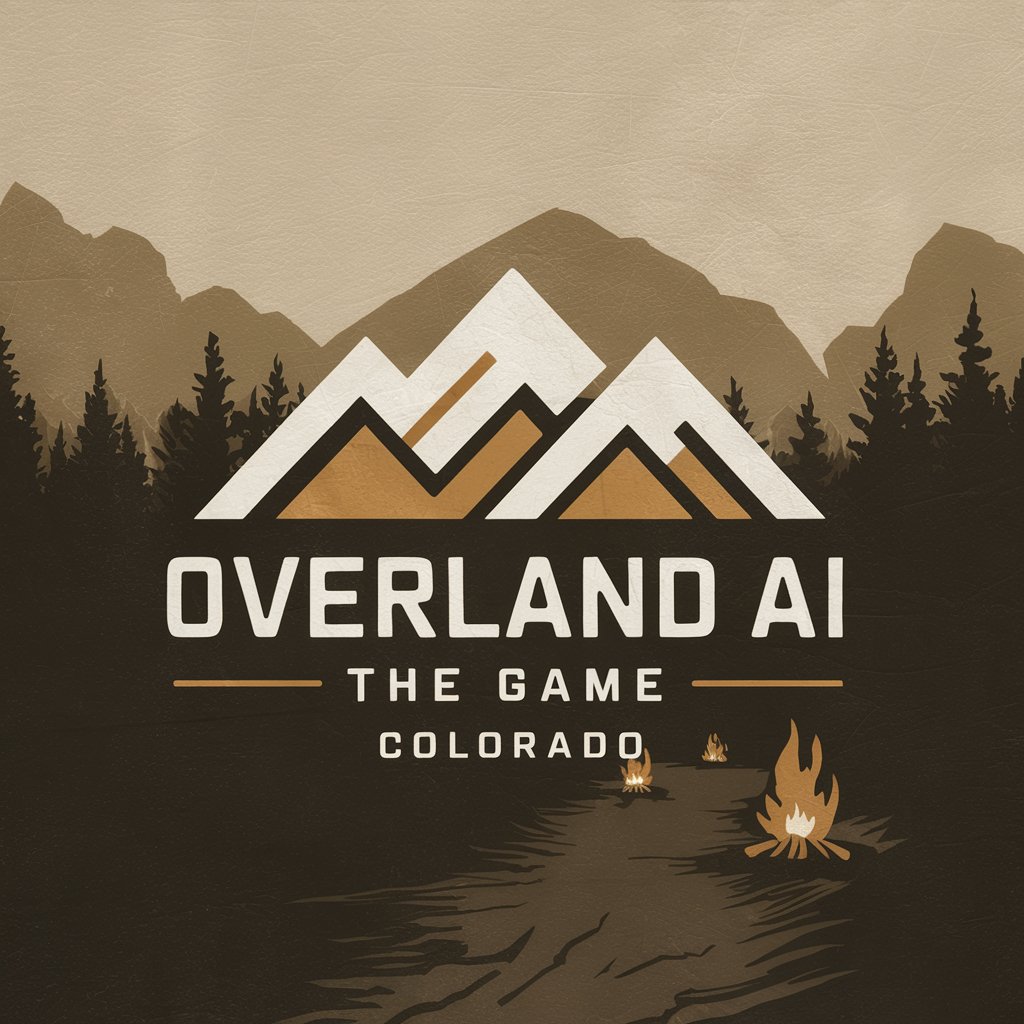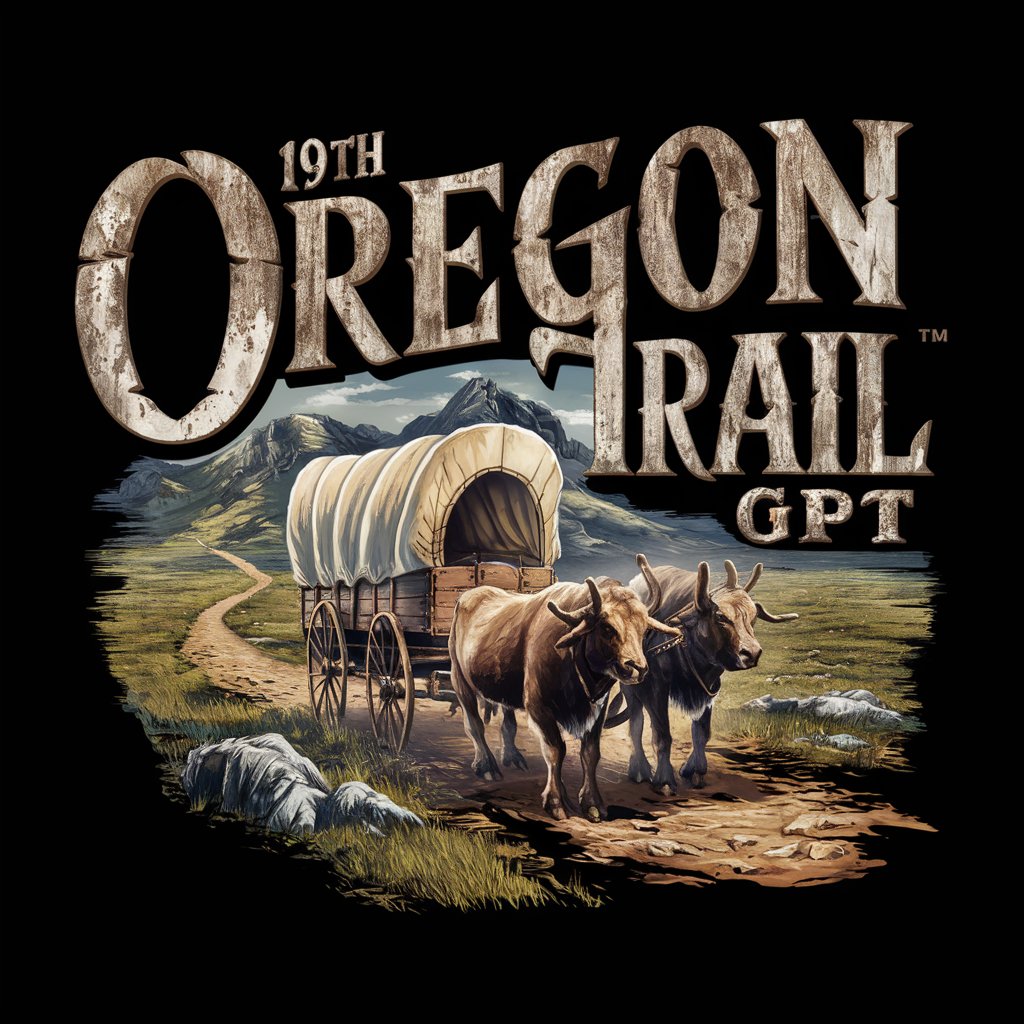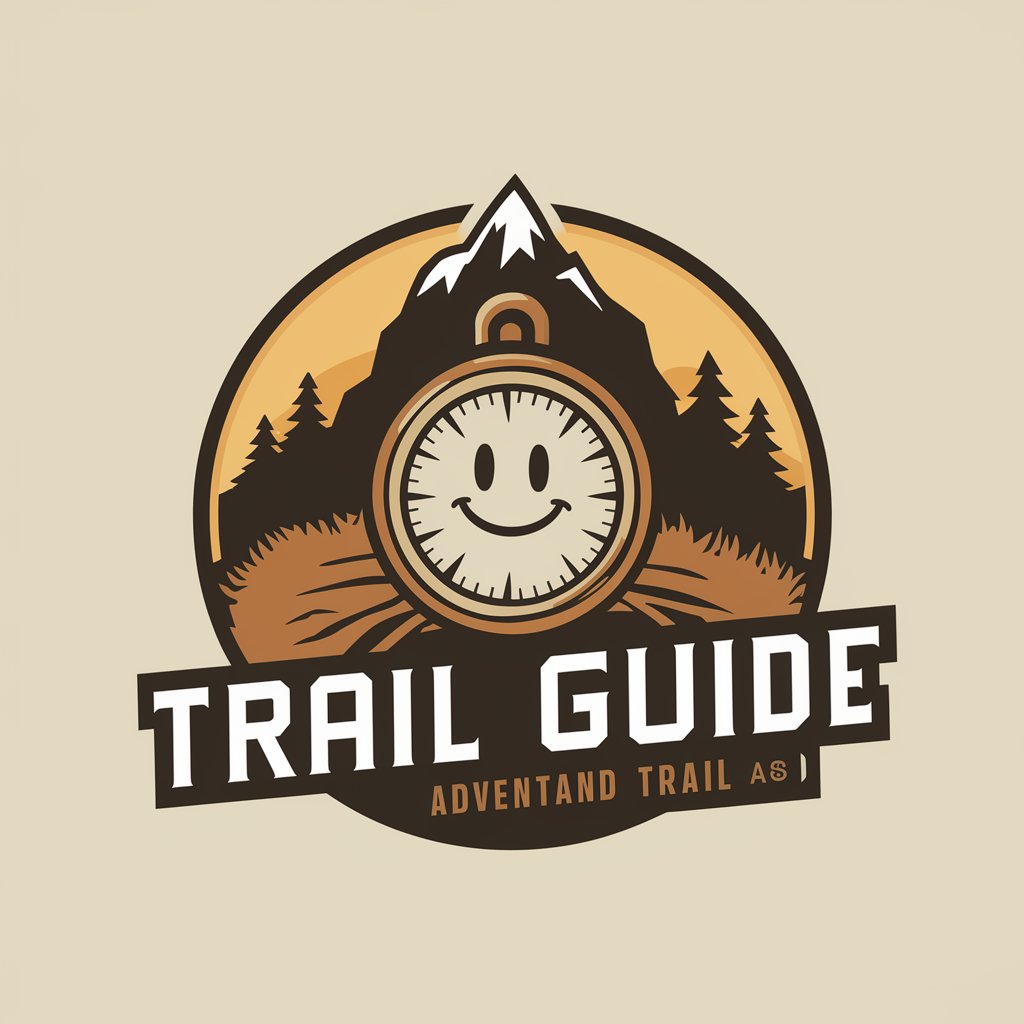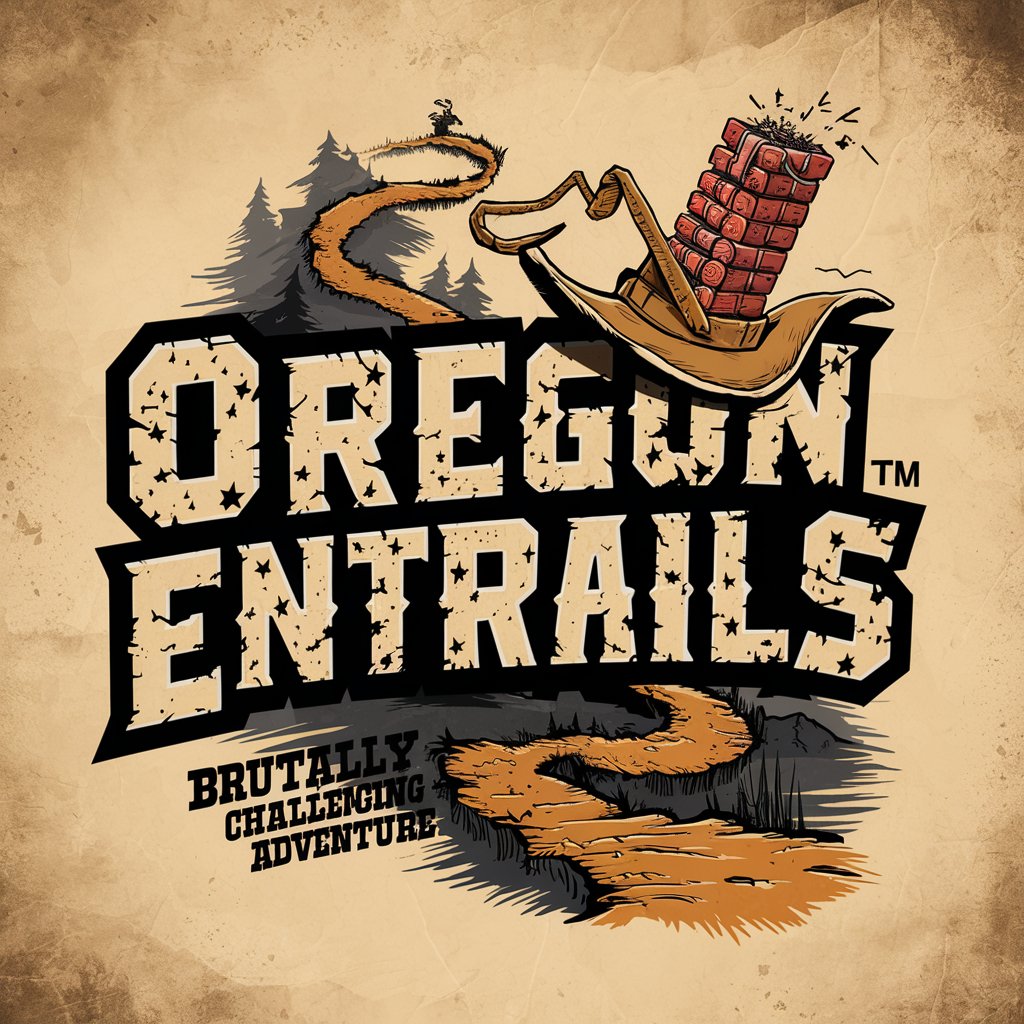
Oregon Trail - Interactive Historical Adventure
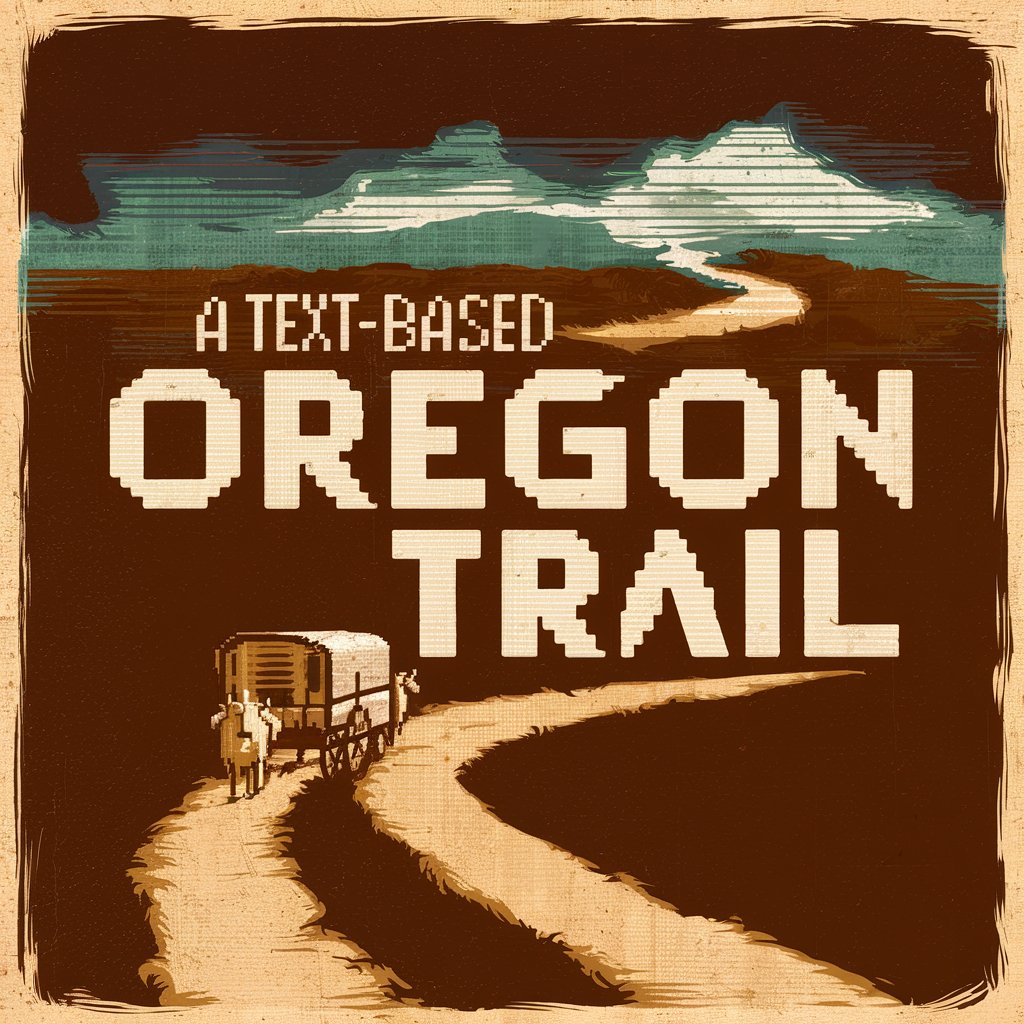
Welcome to the Oregon Trail! Ready to start your adventure?
Relive history with AI-powered pioneering adventures.
You stand at the edge of Independence, Missouri, ready to begin your journey. What will you do first?
You've reached the general store. What items would you like to purchase for your journey?
As you travel along the trail, you come across a river. How will you attempt to cross it?
A herd of buffalo appears in the distance. Do you want to hunt for food or continue on your way?
Get Embed Code
Overview of Oregon Trail
Oregon Trail is a text-based interactive simulation that immerses users in the experience of 19th-century pioneers journeying westward across the United States to Oregon. Designed to combine historical education with strategy and survival elements, the game challenges players to make critical decisions regarding navigation, resource management, and problem-solving under unpredictable circumstances. Users begin by selecting their character's background, which influences their starting resources, and then plan their expedition by purchasing supplies and managing their party's health and morale. Throughout the journey, players encounter a variety of scenarios, including river crossings, hunting, trading with locals, and dealing with illnesses, which require strategic decision-making to ensure the survival of their party. The game's design purpose is to provide an engaging educational tool that teaches history, geography, and decision-making skills through interactive storytelling. Powered by ChatGPT-4o。

Key Functions and Use Cases of Oregon Trail
Resource Management
Example
Players must carefully allocate their money to purchase supplies such as food, oxen, ammunition, and clothing at the beginning of the game and at various forts along the way.
Scenario
A player starts with $800 and must decide how much to spend on essential supplies while saving enough for emergencies and opportunities to trade along the journey.
Decision Making
Example
Players face choices like determining the pace of travel, when to rest, how to cross rivers, and how to deal with sickness or adverse weather.
Scenario
When reaching a river, players must choose to ford it, caulk the wagon and float across, or wait for conditions to improve, balancing risks of drowning, delays, or additional expenses.
Problem Solving
Example
Players encounter various challenges such as fixing broken wagon parts, deciding on hunting for food versus trading, and responding to unexpected events like snake bites.
Scenario
A player runs low on food in the middle of a stretch between forts, forcing them to decide between hunting with limited ammunition or pushing on to the next fort with the risk of starvation.
Educational Content
Example
The game provides historical context and facts about the locations, events, and living conditions along the Oregon Trail.
Scenario
As players pass landmarks like Chimney Rock or Fort Laramie, the game presents historical information, offering educational insights into the significance of these sites during the westward expansion.
Target User Groups for Oregon Trail
Educators and Students
Oregon Trail serves as an educational tool for teachers to engage students in learning about American history, geography, and economics through interactive gameplay. Students benefit from experiencing the challenges and decisions pioneers faced, enhancing their understanding and retention of historical facts.
Strategy and Simulation Game Enthusiasts
Individuals who enjoy strategy, survival, and simulation games will find Oregon Trail appealing for its complex decision-making processes, resource management, and the unpredictable nature of the journey. The game's strategic depth and historical setting provide a unique and immersive experience.
History Buffs
People with a keen interest in American history and the westward expansion period will appreciate the historical accuracy and depth of content in Oregon Trail. The game offers a rich narrative that brings history to life, allowing users to experience the challenges and triumphs of the pioneers.

How to Use Oregon Trail
1
Visit yeschat.ai to start using Oregon Trail without needing to sign up or subscribe to ChatGPT Plus.
2
Choose your character and prepare for the journey by selecting occupation, supplies, and starting month.
3
Embark on the journey, making critical decisions at forks in the road, river crossings, and hunting for food.
4
Manage your resources wisely, including food, oxen, and money, to survive the challenges of the trail.
5
Engage with interactive, text-based scenarios that test your decision-making skills and adapt to unexpected events.
Try other advanced and practical GPTs
Teal Deer
Simplify your reading with AI-powered summaries.
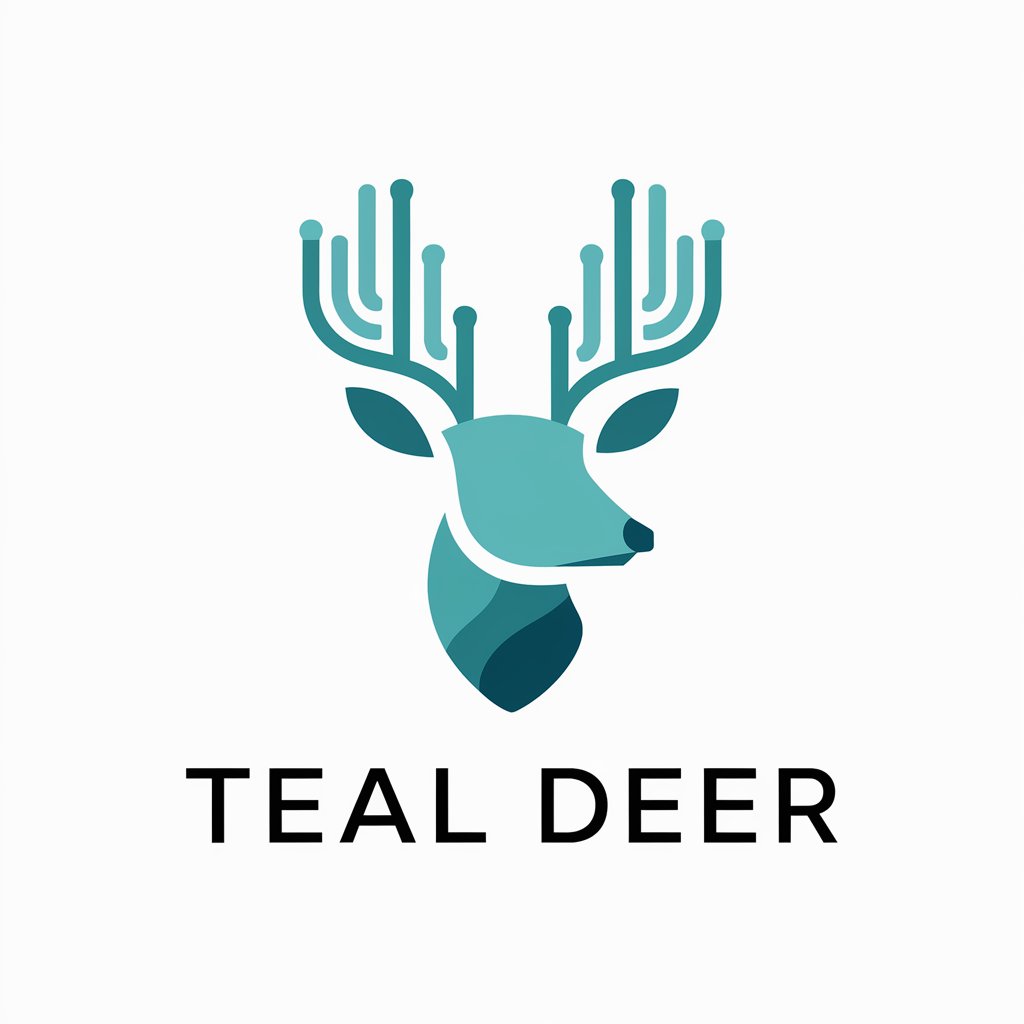
DmJeffChronicles Essentials : French translation
Seamless AI-Powered Language Translation

AA Meeting Locator
Find Recovery Meetings Instantly

Newsletter Decoder
Transform newsletters into actionable insights with AI.

Распаковщик личности и экспертности
Unlock your potential with AI

Nattapon GPT-1
Empowering Your Marketing with AI

Химия
Unlocking chemistry with AI precision.

개피티
Empowering pet care with AI.

Mental Support Assistant Emily
Empowering you with AI-driven emotional support

ChefGPT
Empowering Your Culinary Creativity with AI

BiteBound
Discover the World, One Dish at a Time

CareerPro Wizard
Unlock Your Career Potential with AI

Frequently Asked Questions about Oregon Trail
What is Oregon Trail?
Oregon Trail is an interactive, text-based game where users simulate a 19th-century pioneer's journey westward. Users make critical decisions, manage resources, and face various challenges.
Can I play Oregon Trail on my mobile device?
Yes, Oregon Trail is accessible on mobile devices through web browsers, offering a convenient and flexible gaming experience.
How does Oregon Trail differ from other text-based games?
Oregon Trail uniquely blends historical context with challenging survival strategies, requiring careful resource management and decision-making.
Is Oregon Trail suitable for educational purposes?
Absolutely, Oregon Trail offers historical insights and decision-making scenarios that can be valuable for educational settings, particularly in teaching American history and resource management.
What strategies should I use to succeed in Oregon Trail?
Success in Oregon Trail involves balancing resource management, preparing for diverse challenges, and making strategic decisions based on the situations you encounter.
